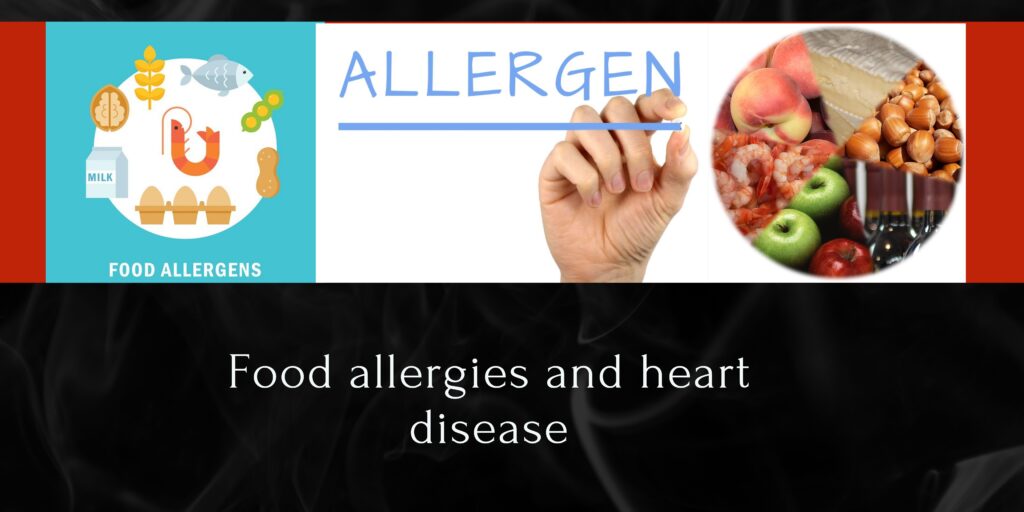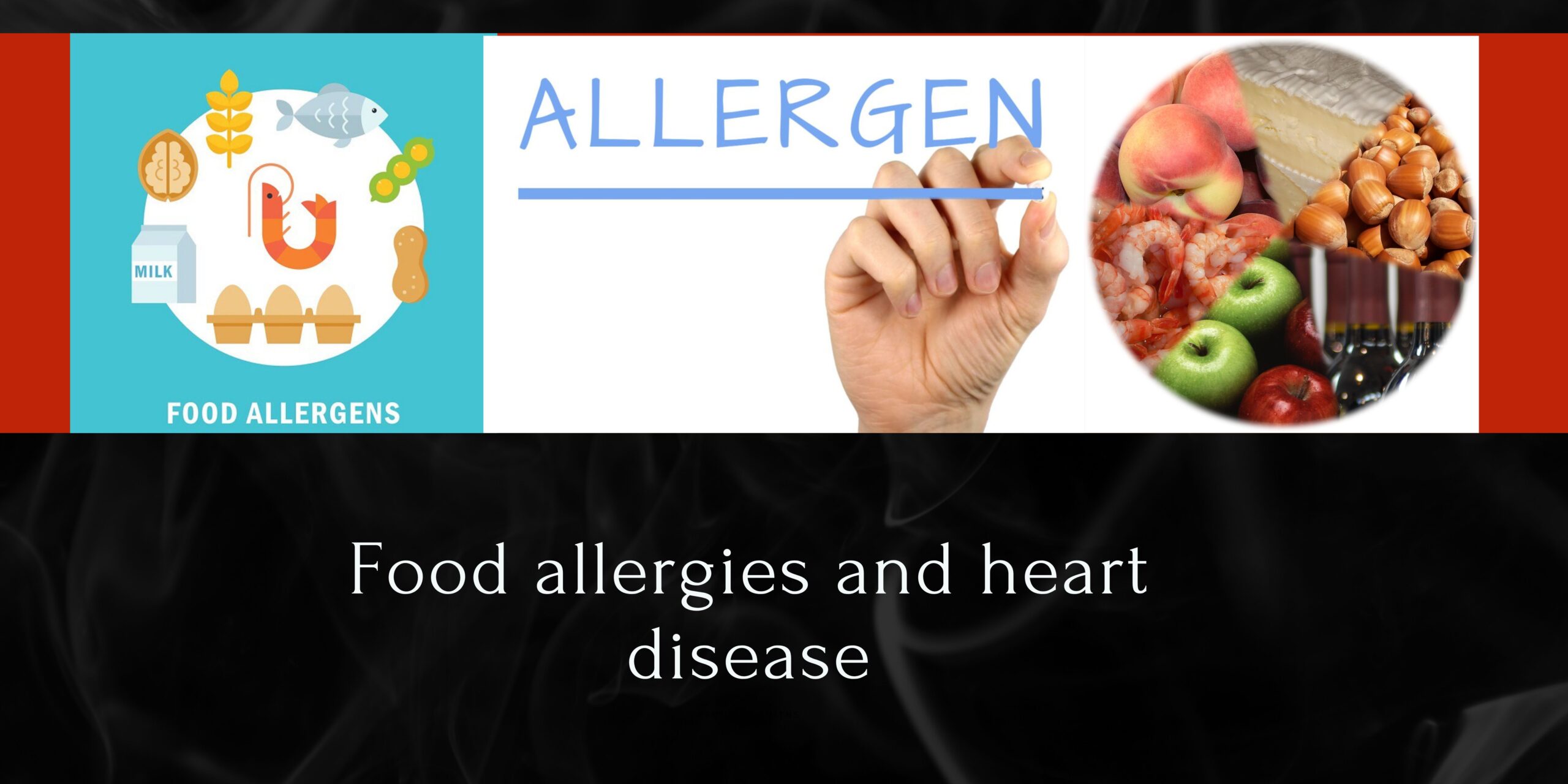Summary
New research indicates that allergic reactions to everyday foods like dairy and peanuts may elevate the risk of heart disease and cardiovascular death to a degree comparable to or greater than smoking. What’s noteworthy is that these harmful allergic responses can affect both individuals with known food allergies and those without apparent allergy symptoms.

About the Research
New research suggests that sensitivity to common food allergens like dairy and peanuts, previously underestimated, could be a significant cause of heart disease. This increased risk of cardiovascular death is observed not only in individuals with evident food allergies but also in those without apparent allergic reactions.
The heightened risk, potentially surpassing that of smoking, diabetes, and rheumatoid arthritis, was identified through research conducted by UVA Health scientists and their collaborators. Analyzing data from thousands of adults over time, the study revealed that individuals producing antibodies in response to common foods, particularly cow’s milk, faced an increased risk of cardiovascular-related death. This association persisted even after considering traditional heart disease risk factors like smoking, high blood pressure, and diabetes. Other allergens such as peanuts and shrimp also showed significant links to cardiovascular risks.
A groundbreaking discovery reveals the first-ever connection between “IgE” antibodies to common foods and an elevated risk of cardiovascular mortality, according to researchers. While the findings don’t definitively establish a causal link, they build on previous studies linking allergic inflammation to heart disease. About 15% of adults produce IgE antibodies in response to foods like cow’s milk and peanuts, and this research indicates that the strongest association with cardiovascular death occurs in individuals with these antibodies who continue regular consumption of the respective food, suggesting the absence of severe food allergies.
Researcher Jeffrey Wilson, an allergy and immunology expert at the University of Virginia School of Medicine, explains that the study focused on detecting IgE antibodies to food in blood samples. Despite most subjects not having evident food allergies, the findings suggest a silent immune response to food. While this response may not induce immediate allergic reactions, it could contribute to inflammation, potentially leading to long-term issues like heart disease.
Read Also: The Power and Significance of Melanin in Your Skin – Know More (kmore.info)
Unforeseen Insights into Food Allergies
Prompted by their earlier discovery linking a tick-borne food allergy to heart disease, researchers at UVA explored the potential impact of common food allergies on heart health. The initial tick-related allergy, known as the “red meat allergy,” is transmitted by the lone star tick and is attributed to sensitivity to a specific sugar, alpha-gal, present in mammalian meat. This alpha-gal syndrome can lead to various symptoms, including hives, digestive issues, breathing difficulties, and, in severe cases, potentially fatal anaphylaxis, occurring hours after consuming beef or pork. Poultry and fish, lacking the sugar, do not induce a reaction.
In an effort to investigate the potential impact of various food allergies on heart health, a team led by Wilson and Platts-Mills, in collaboration with researchers from UVA and Corinne Keet from the University of North Carolina, analyzed data from 5,374 participants in the National Health and Examination Survey (NHANES) and the Multi-Ethnic Study of Atherosclerosis (MESA) at the Wake Forest site. Among the participants, 285 had experienced cardiovascular-related deaths.
The study revealed that individuals in the NHANES group with IgE antibodies to at least one food faced a significantly elevated risk of cardiovascular death. This association was particularly notable for those sensitive to milk, a correlation that also held true for the MESA participants. Further analysis identified peanut and shrimp sensitization as significant risk factors for cardiovascular death in individuals regularly consuming these foods.
Wilson commented, “While we previously noted a connection between allergic antibodies to the alpha-gal red meat allergen and heart disease, this paper suggests that the link between allergic antibodies to food allergens and heart disease extends beyond alpha-gal. This finding is somewhat surprising, as there has been limited prior exploration into this aspect.”
Post by University of Virginia:-https://newsroom.uvahealth.com/2023/11/09/allergic-responses-to-common-foods-up-risk-of-heart-disease/
Connection Between Allergies and Cardiovascular Health
This groundbreaking study is the first to establish a connection between allergic antibodies to common foods and cardiovascular mortality. Previous research has identified other allergic conditions, such as asthma and eczema, as risk factors for cardiovascular disease.
The researchers propose a hypothesis suggesting that allergic antibodies to food might impact the heart by triggering the activation of specialized cells called mast cells. While mast cells in the skin and gut are known for their role in classic allergic reactions, they are also present in cardiac blood vessels and heart tissue. The persistent activation of mast cells could induce inflammation, contributing to the harmful buildup of plaque that leads to heart attacks or other cardiac damage.
While the connection between allergic antibodies to common foods and cardiovascular mortality has been identified, the scientists emphasize the need for caution. The certainty of this association is not yet established, and alternative factors such as genetics or the environment may contribute. There is also a possibility that cardiovascular disease might increase the risk of food sensitization, reversing the assumed causality. However, the recent findings make this scenario less likely.
The researchers advocate for further studies to gain a more comprehensive understanding of the implications before suggesting changes in how doctors approach the treatment or management of food allergies. Jeffrey Wilson notes, “This work suggests the potential for a future where a blood test could offer personalized information about a heart-healthy diet. However, before making such recommendations, there is still much work to be done in comprehending these findings.”
